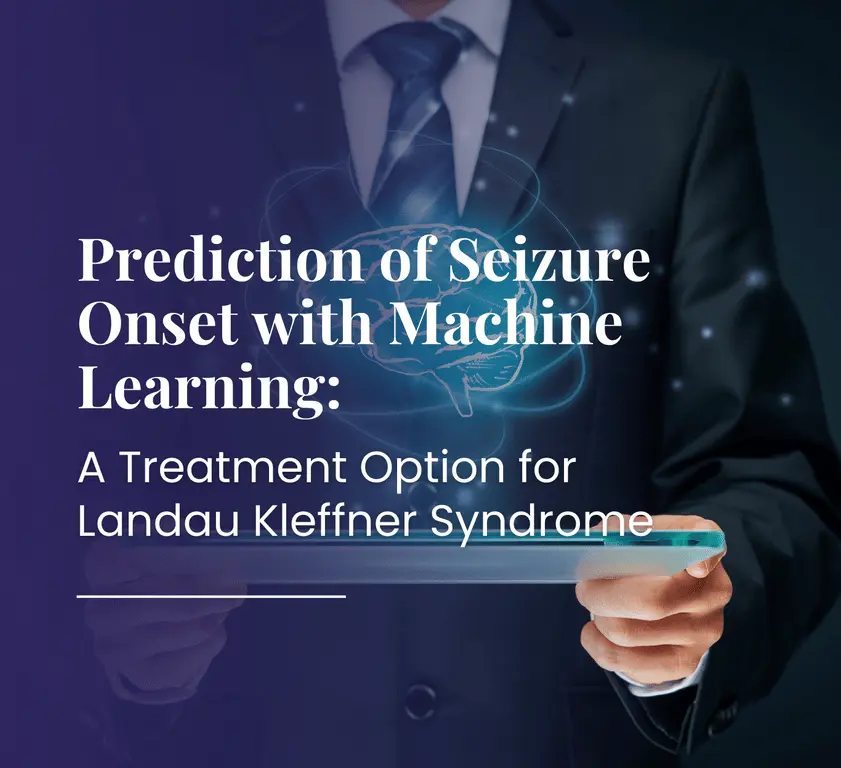Research Details

Prediction of Seizure Onset with Machine Learning: A Treatment Option for Landau Kleffner Syndrome
Landau Kleffner Syndrome (LKS) is a rare genetic disorder that presents in the form of auditory verbal agnosia and aphasia (loss of ability to interpret and express language) as well as electroencephalographic abnormalities, which present in children from the ages of 2 to 8. The disorder is classified as developmental/epileptic encephalopathy with spike wave activation on sleep (DEE-SWAS), with 70% of affected patients having epileptic seizures. The disorder is diagnosed based on language regression in addition to severe EEG abnormalities during non-REM sleep. Sometimes patients with epileptiform disorders can sense when a seizure is imminent and alert caretakers of the situation so they can be safely situated when the seizure occurs. This period is called the preictal period or prodrome in which patients can sometimes detect changes in mood and behavior. However, in disorders such as LKS, the loss of verbal expression proves difficult for expression of needs, and could lead to dangerous situations along with a constant need for such patients to be monitored. In this study, machine learning techniques are utilized to analyze several hours of ictal and preictal EEG data from 23 patients in order to predict the onset of a seizure. This study aims to promote patient safety and reduce need for constant monitoring by predicting when a seizure will occur. Several machine learning models have been constructed and their accuracies have been analyzed and compared to those of other studies to create an optimized program which can accurately interpret EEG data.
By: Anuprabha Dandapat
